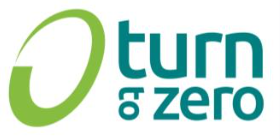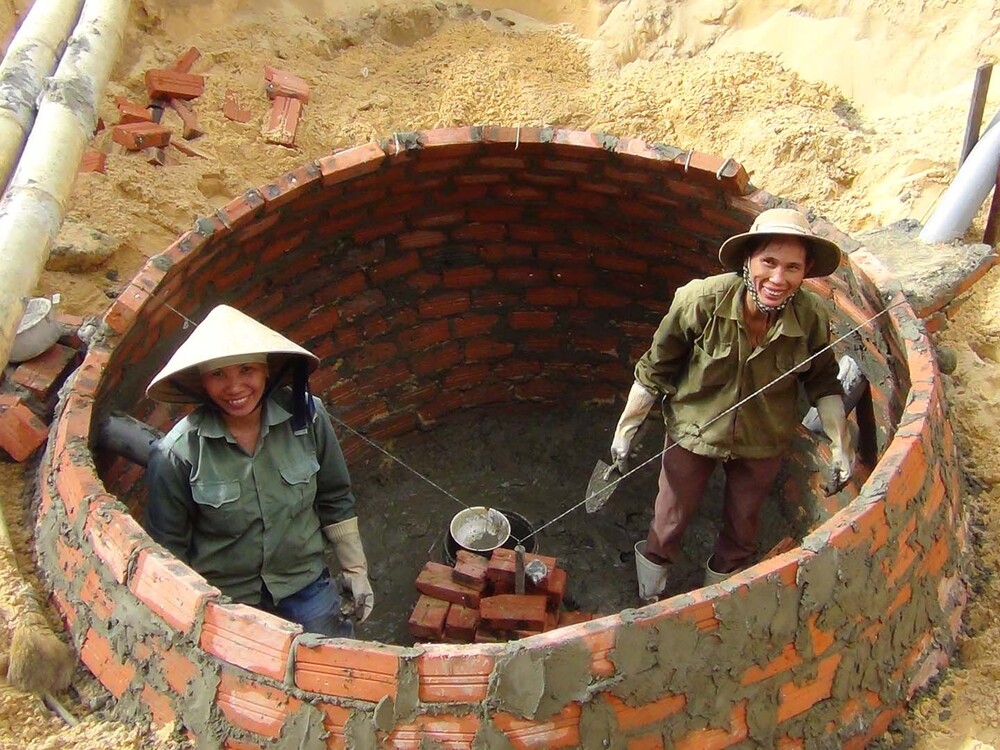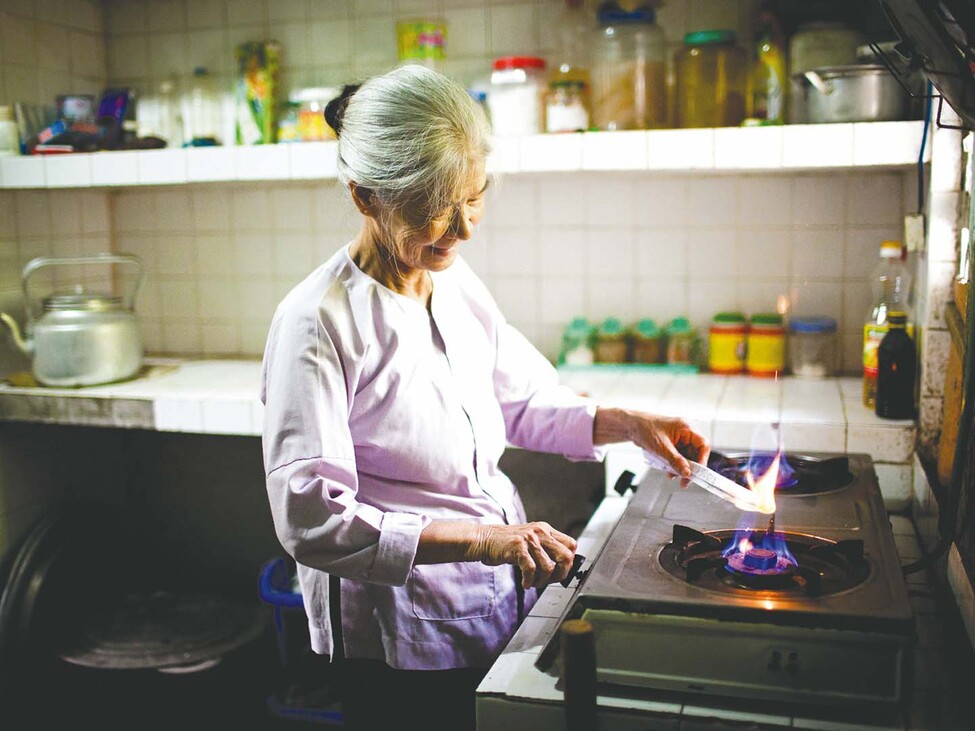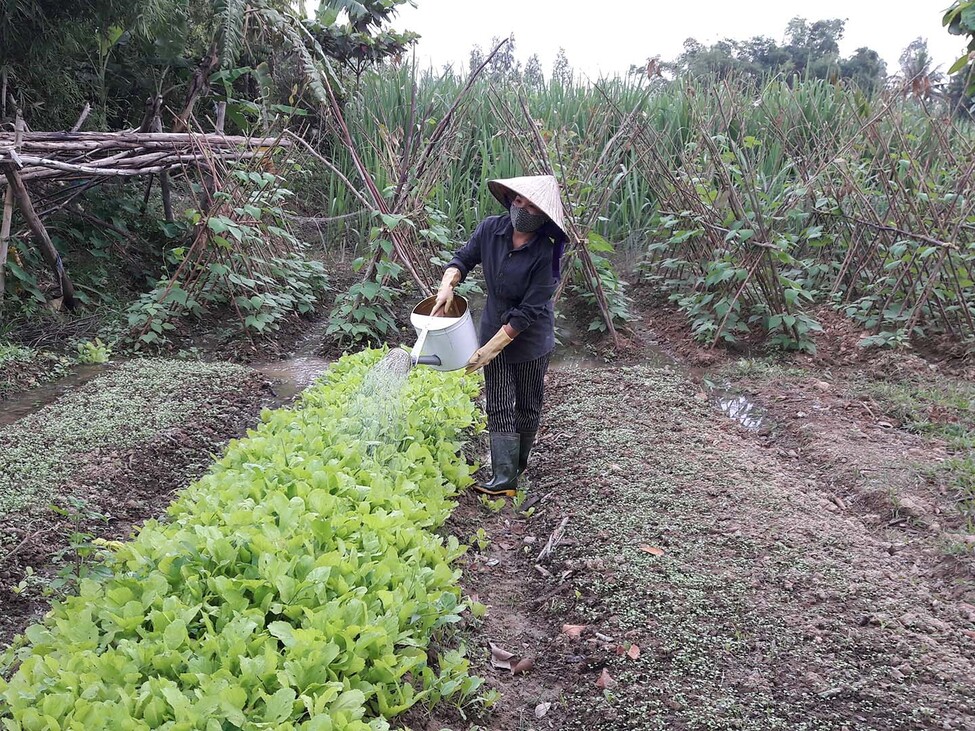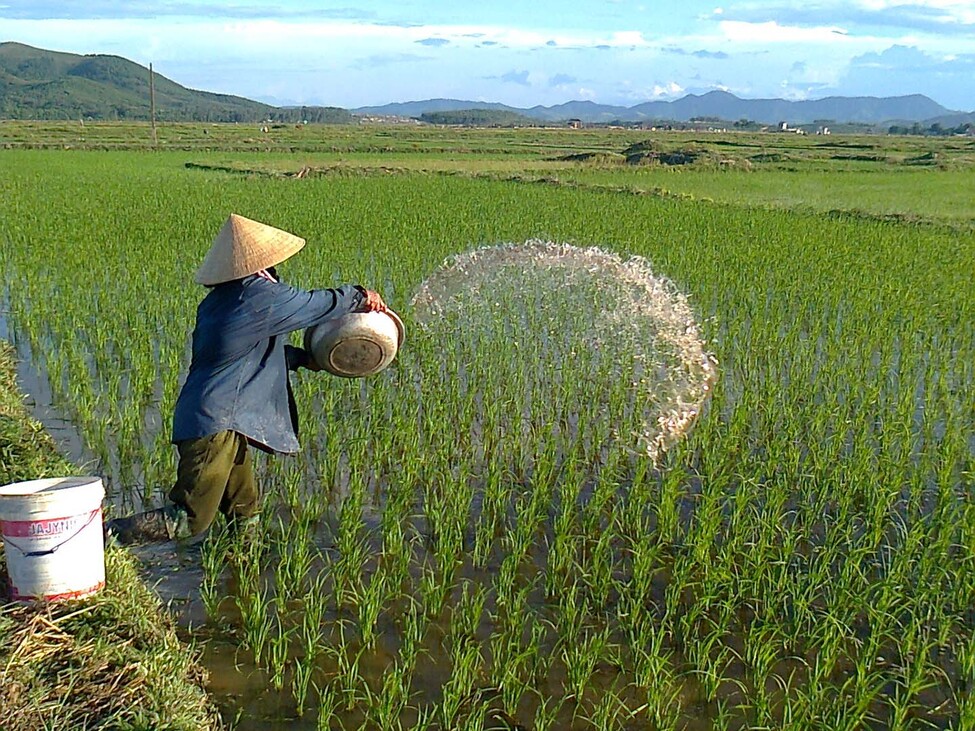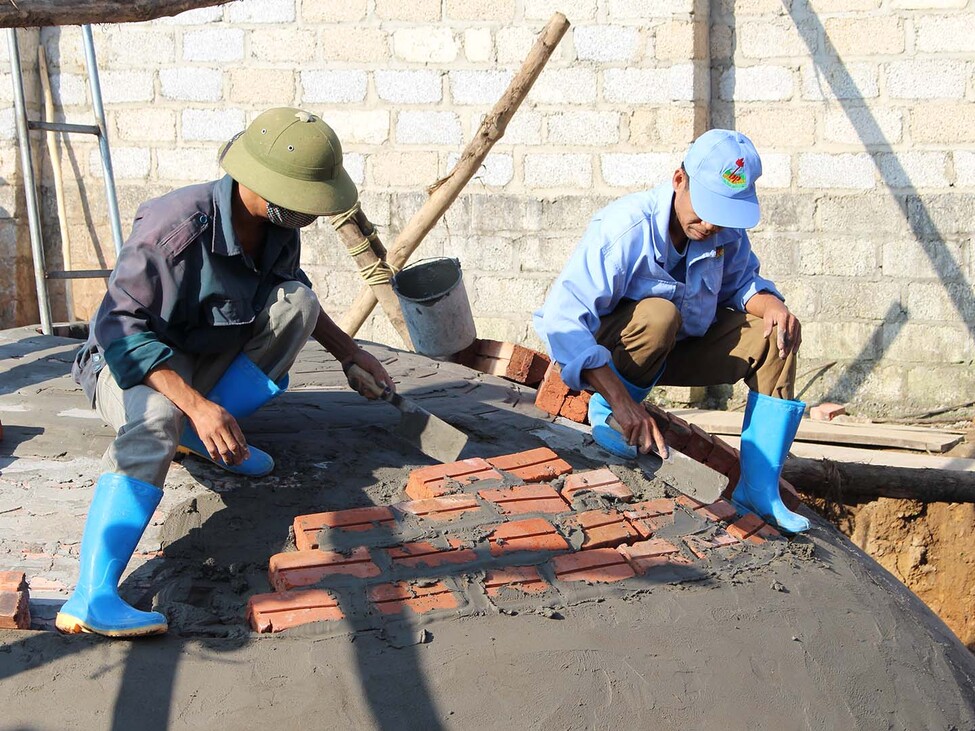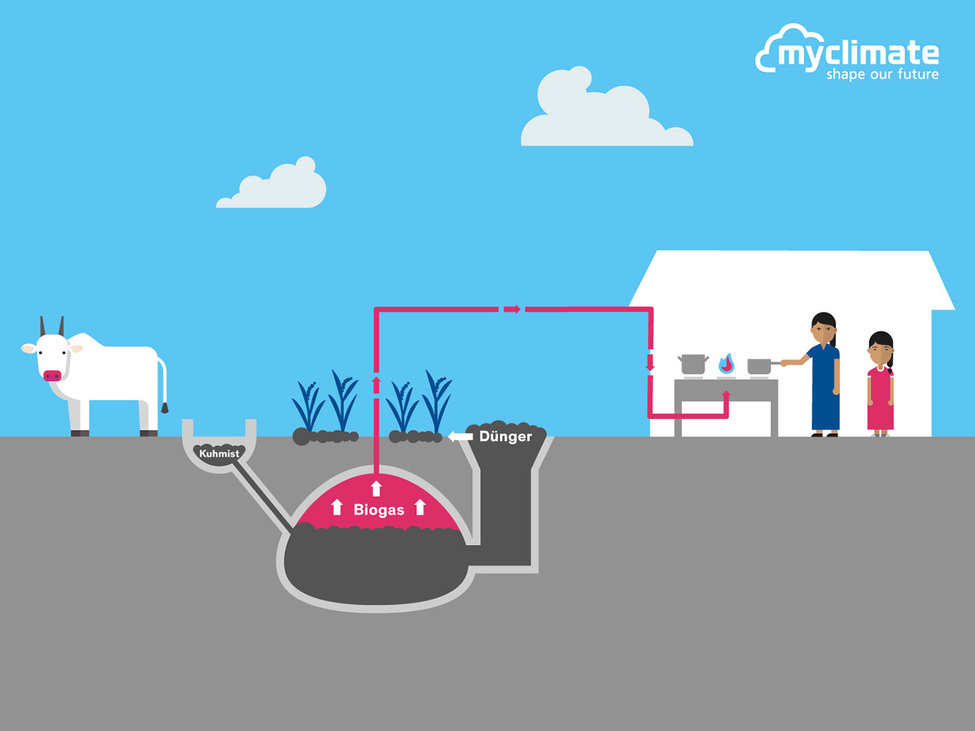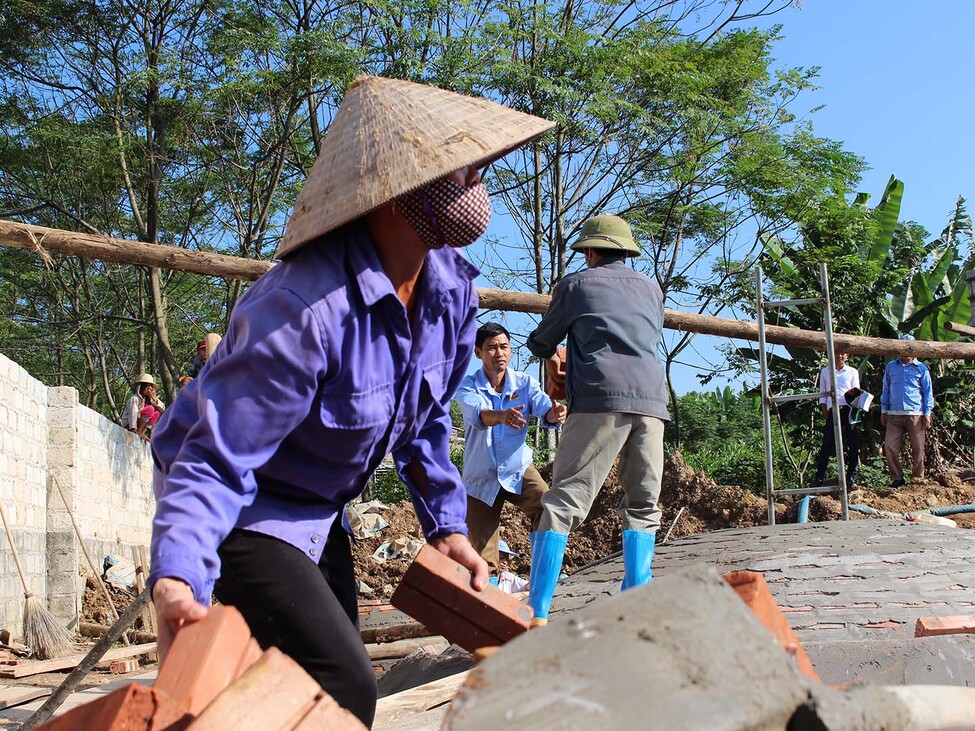People on the rural countryside of Vietnam are facing increasing challenges to secure energy for cooking and live. Their access to traditional cooking fuels is declining. The commercial fuels are expensive. The collection or purchasing of firewood deplete natural resources and damage the environment. The income spent on these fuels and the time spent by women and children gathering it could be used for other activities such as income generation, school and leisure. Moreover, the firewood is often burned indoors resulting in respiratory and eye problems. On the other hand, animal husbandry causes considerable sanitary and environmental pollution problems for rural households.
How biogas works
Biogas displaces smoky cooking fires. Human waste and animal dung are collected in a reservoir. As the waste decomposes it releases methane gas which is piped into homes and burned for fuel. The remaining waste yields an organic fertilizer by-product used by farmers. The biogas displaces carbon emissions from firewood, LPG and agricultural residues that were used before using biogas plants. Moreover, biogas plants prevent methane emissions from pig manure, which without a biogas plant is deposited in pits near the household, which rots anaerobically and emits methane.
More than CO₂ reduction
Using biogas instead of firewood and LPG means more of Vietnam’s forest is preserved which also results in less pressure on fauna and flora. Other benefits include saving on fuel purchases and less time spent by women gathering cooking fuel. The programme creates jobs in training local masons to build and maintain biogas digesters. The remains of the biodigester plant, the bioslurry is often used by the households as nutrients for their fish ponds or as organic fertilizer on their rice and corn fields, for growing coffee or fruit trees. A biogas user survey revealed that crop yields have been increased by five to 20 per cent.
Awards and Implementation
The programme won the prestigious “Energy Globe Award”, “Ashden Award” and the “Humanitarian Award” of the World Energy Forum and is on track to meet its goal of constructing 200,000 locally produced household digesters for farmers by 2020. The programme is implemented by the Vietnamese Ministry of Agriculture and Rural Development (MARD) together with its partner SNV Netherlands Development Organization.
Carbon Finance is used to make the construction of biogas plants more affordable for the pastoralist families covering 70% of the total project costs. It is also used to provide additional financial support to install the units in classified “poor” districts as well as for capacity building for stakeholders, R&D activities and quality management.
